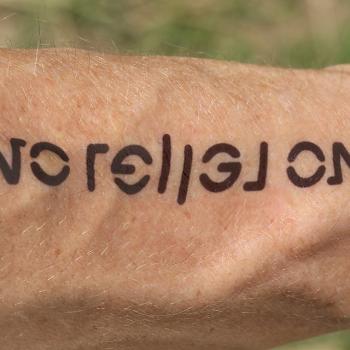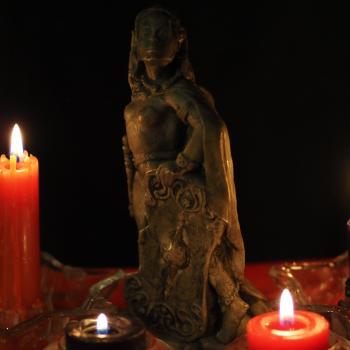Mormons have a joke that is so old it has become a cliché: Catholic doctrine is that the pope is infallible, but they don't believe it; Mormon doctrine is that the prophet is fallible, but they don't believe it.
Like many jokes and all clichés, that joke works because there is truth in it. The joke misunderstands the doctrine of papal infallibility, but it gets very close to the truth of the way many contemporary Mormons have thought about their leaders, not just the prophet. And for some the truth of that joke has become a tragedy.
The LDS Church's recent postings on its history of polygamy (see here, here, and here) have caught many off guard. For a long time the Church has avoided and even covered over not only the particular facts about polygamy's beginnings but sometimes even polygamy itself.
Frankly I understand the motive behind that avoidance: we don't practice polygamy and haven't for a long time, so let's avoid talking about it so we can talk about more important things—like faith, repentance, baptism, the Gift of the Holy Ghost, and enduring to the end. But it is generally agreed that we made a mistake. That strategy has caused a lot of pain and doubt.
In spite of that, it is a mistake that I understand. As a young man I thought we should be more forthcoming about our history, but I'm not sure that had I been a leader at the time I would have done differently. Things looked different during the fifty-plus years that the Church was coming out of persecution and perceived persecution. Things looked different to people whose fathers and mothers, grandmothers and grandfathers, aunts and uncles had been expelled from Missouri and Illinois by force.
As Kristine Haglund points out, members of the LDS Church have lived in different circumstances, sometimes almost to the point of growing up in different churches. Some of us learned early on the things the Church is now writing about, so there is little new in the recent news. But not everyone did.
Many did not know about Joseph Smith's practice of polygamy or about the difficulties that surrounded that practice. Even fewer, perhaps, knew about the complications of bringing plural marriage to a halt. And the institutional Church bears considerable responsibility for their ignorance.
Having known about the history of plural marriage, about issues with the Book of Abraham, and so on for a long time, I'm long past those things being trouble for me. That's not to say that I don't understand that they trouble others or why. It is to say that they are no challenge to my faith. I'm interested in the recently published materials, but not because of what they say or don't say about the history of the LDS Church.
I hope that the new strategy of making our story public even when we find it difficult to explain will in the future help prevent the kinds of pain we see some people suffering now. But those documents are important to me because I also hope that they will help Latter-day Saints rethink what it means to recognize authority and to have a living prophet.
We have often been guilty of a kind of idolatry of our leaders, implicitly imputing the characteristics of God to them because we thought that is what it meant to be called by God. To my knowledge few of our leaders asked for our idolatry, but we fell into it anyway. Perhaps our new strategy will help us repent.
I hope that the recently published documents on LDS history will help us see that prophets don't usually get definitive answers to their questions, and even when the answer is definitive, they don't often, if ever, get definitive directions for how to put into practice what they have been told. Being called and inspired by God doesn't remove the need to figure out what that calling and inspiration mean, nor does it remove the possibility that I will confuse my will and desires for those of God.
Prophets speak for God, but he leaves them their personality, humanity, talents—and weaknesses. As he said through Joseph Smith in 1831, revelation is 'given unto my servants in their weakness, after the manner of their language' (D&C 1: 24). God can speak to us only where he finds us.
But if prophets are human too, how can I trust what they teach? Even if a prophet is only another human being like the rest of us, it doesn't follow that I ought not to trust him. Trust—in other words, faith—and doubt are not mutually exclusive. Trust requires uncertainty, and human agency requires uncertainty. In turn, uncertainty and human fallibility mean that, Christ excepted, even the most righteous or smartest or whatever-you-wish person will misunderstand and be wrong when he hears what God has to say or when he tries to do what he has been asked. Those who are less than such a maximally great person, which includes all of the prophets, will not only be wrong, they will sometimes even do wrong.





